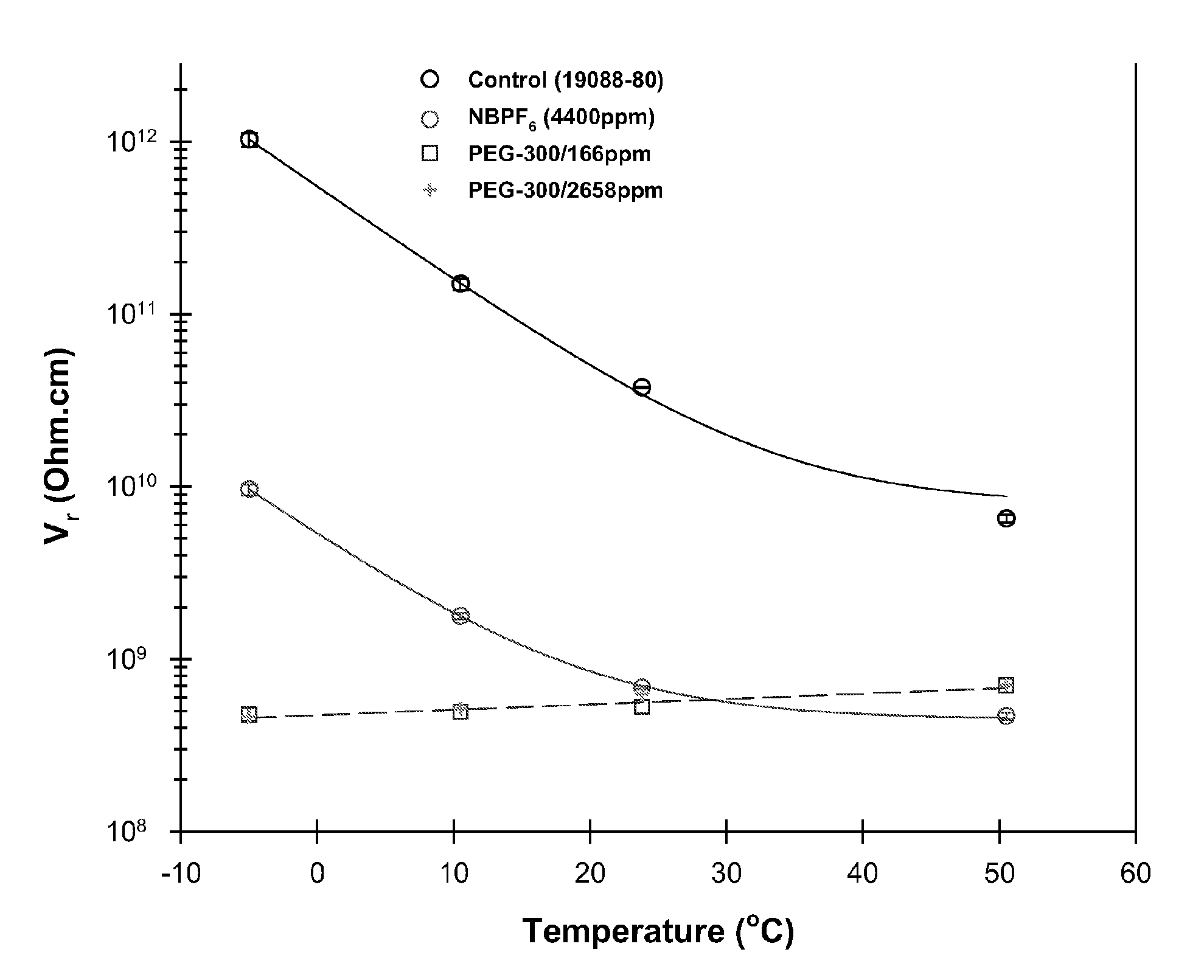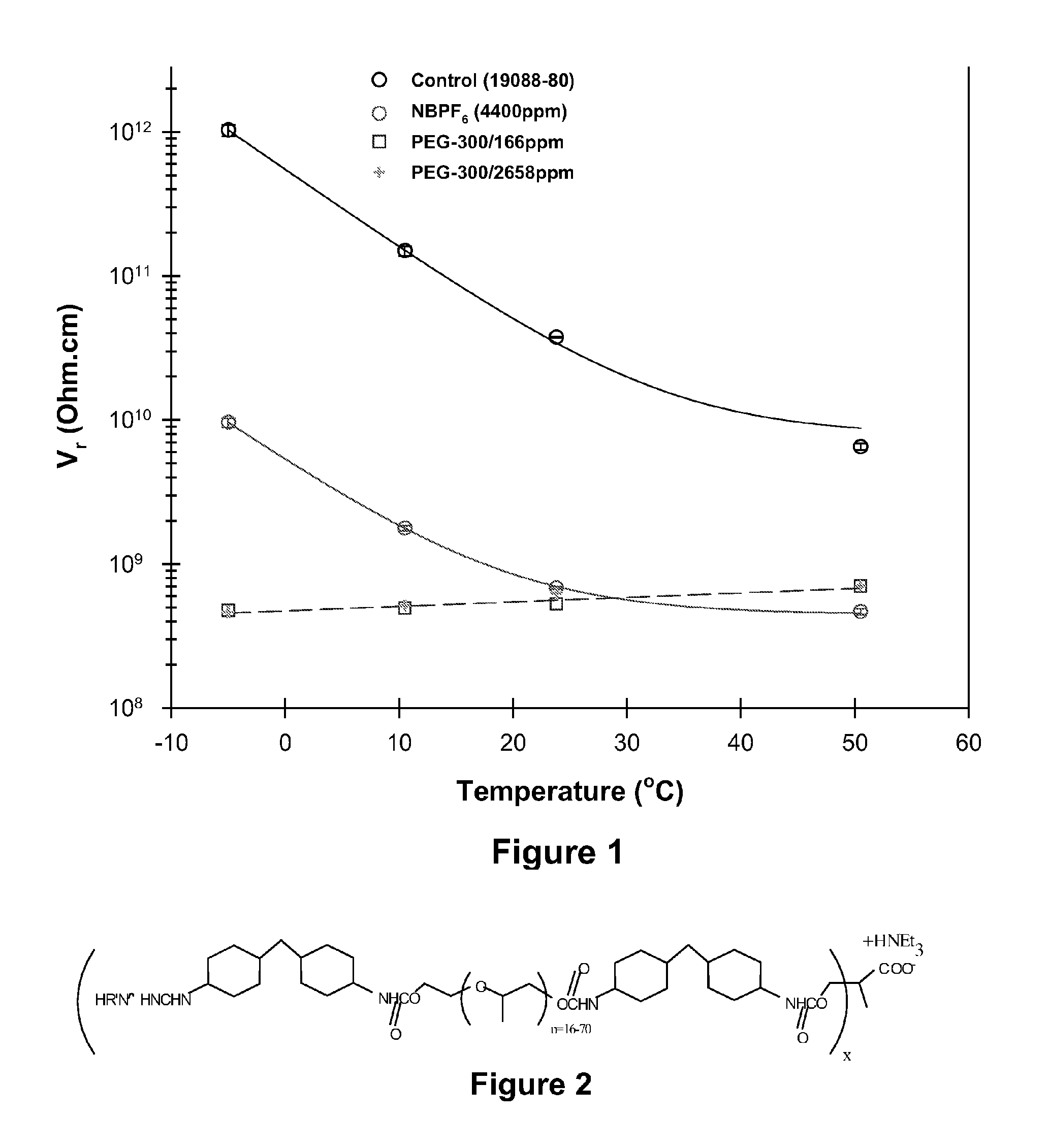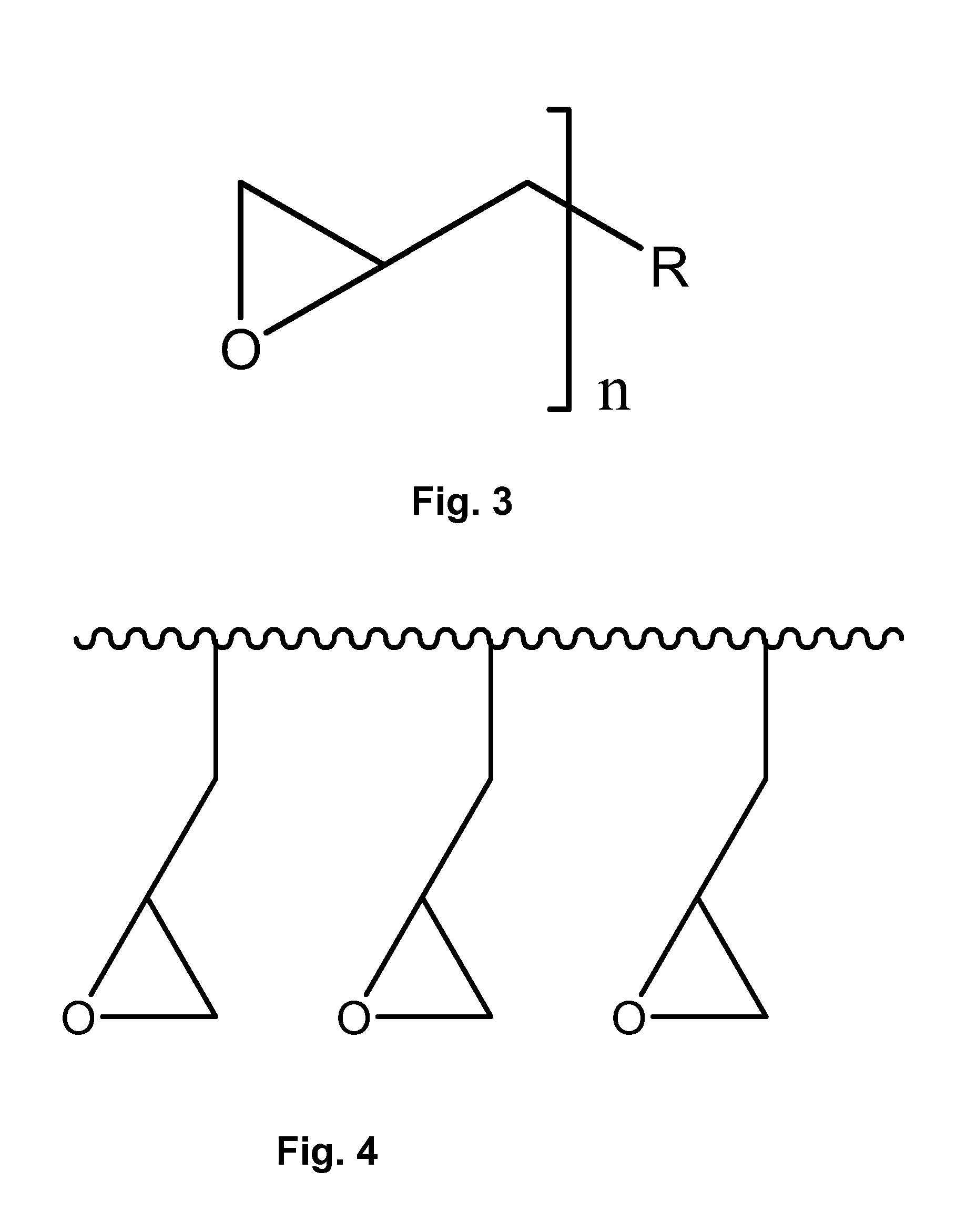Electro-optic displays, and materials for use therein
a technology applied in the field of optical displays and materials, can solve the problems of inadequate service life of optical displays, preventing their widespread use, and gas-based electrophoretic media prone to the same types of problems
- Summary
- Abstract
- Description
- Claims
- Application Information
AI Technical Summary
Benefits of technology
Problems solved by technology
Method used
Image
Examples
example 1
[0106]Three different commercially available PEG's (with number average molecular weights, Mn of 300, 1000, and 8000 g / mole respectively, purchased from Aldrich Chemical) were used at a concentration of 4400 ppm in a custom polyurethane adhesive. The concentration of 4400 ppm corresponds a molar concentration of 5.17×10−6 for PEG-300, 1.55×10−6 for PEG-1000, and 1.94×10−7 for PEG-8000. To provide experimental samples closely simulating an encapsulated electrophoretic display, each polyurethane / PEG mixture was coated at a thickness of 30±2 μm on to a 7 mil (177 μm) poly(ethylene terephthalate) (PET) film coated with ITO, the mixture being coated on to the ITO-covered surface of the film. To provide experimental test units suitable for use in these experiments, pieces of the resultant adhesive-coated film were then laminated at 120° C. and 65 psig (approximately 0.5 mPa) at a speed of 6 inches / minute (approximately 2.5 mm / sec) to a 5 cm by 5 cm PET film covered with a carbon black lay...
example 2
[0110]As already mentioned, the addition of low molecular weight hydroxyl-containing polymers improves the variation of the volume resistivity of polyurethane adhesives with temperature in a manner which the addition of salts does not. A second series of experiments were conducted to illustrate this behavior. Test units were prepared and conditioned in the same way as in Example 1 except that the conditioning was performed for a minimum of only 100 hours, and that the test units contained only no additive, 4400 ppm of tetrabutylammonium hexafluorophosphate, or 166 or 2658 ppm of PEG-300. Volume resistivity measurements were then conducted at temperatures from −5° C. to 50° C., in all cases at 30 percent relative humidity. The results are shown in FIG. 1 of the accompanying drawings; no error bars are shown in this Figure since experimental error is in general less than the size of the symbols used to mark the data points.
[0111]From FIG. 1, it will be seen that the volume resistivity...
example 3
Cross-linking of Polyurethane Adhesive with N,N-diglycidyl Aniline
[0170]A custom aqueous polyurethane dispersion having a solids content of about 35 percent by weight was coated on to a release sheet and dried in a conveyor oven at 60° C. for approximately 2 minutes, the coating weight of the dispersion being controlled so that an adhesive layer 15 μm thick was formed on the release sheet. To demonstrate the effect of a thermally-activated cross-linking agent, the dispersion used contained 20,000 ppm (based upon the solids content of the dispersion) of N,N-diglycidyl aniline (DGA).
[0171]The resultant adhesive layer was peeled from the release sheet and folded into multiple thicknesses to provide an adhesive layer sufficiently thick for shear modulus testing, which was conducted on a Dynamic Mechanical Analyzer, Model RH2000. A sample of the adhesive was exposed to a temperature of 60° C. for a period of 1000 minutes, then its temperature was raised successively to 70, 80 and 90° C.,...
PUM
| Property | Measurement | Unit |
|---|---|---|
| thickness | aaaaa | aaaaa |
| thickness | aaaaa | aaaaa |
| temperatures | aaaaa | aaaaa |
Abstract
Description
Claims
Application Information
 Login to View More
Login to View More - R&D
- Intellectual Property
- Life Sciences
- Materials
- Tech Scout
- Unparalleled Data Quality
- Higher Quality Content
- 60% Fewer Hallucinations
Browse by: Latest US Patents, China's latest patents, Technical Efficacy Thesaurus, Application Domain, Technology Topic, Popular Technical Reports.
© 2025 PatSnap. All rights reserved.Legal|Privacy policy|Modern Slavery Act Transparency Statement|Sitemap|About US| Contact US: help@patsnap.com



